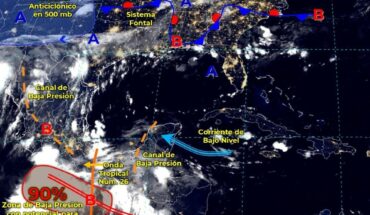The plebiscite of September 4 will be transcendental because in this event, as rarely, two different models of society are clearly expressed, the result of the plebiscite will mark the path that we will travel in the coming decades. The triumph of the Apruebo opens the possibility of democratically overcoming the current social, economic, environmental and political crisis that afflicts our country, setting a clear course towards the urgent transformations that Chile demands.
The political and economic elite is excited and bets on the victory of the Rejection, pretending to maintain continuity of the domination they exercise for centuries; this desperation of the elite has become evident in this last period, where they shamelessly spread lies and launch brutal threats, promoting hatred, fear and disinformation.
Desperate for the eventual end of the advantages and privileges granted to them by the 1980 Constitution, today they cling tooth and nail to the political order devised by Jaime Guzmán, without any shame manipulating reality and trying to deny the obvious: Chile woke up. In real Chile, far from the aristocratic halls, the offices of El Mercurio and the lights of television shows, the popular classes and broad media groups are demonstrating more openly every day for social transformation, betting on the construction of a new country that overcomes the inequities of a model that is exhausted on a global scale.
In that sense, from San Antonio, a commune where the Apruebo obtained about 88.75% of the preferences, we greatly value the draft of a new Constitution prepared by the Constitutional Convention, we actively participate in the process, both with regard to the promotion of Initiatives regarding Local Governments, as well as historically invisible matters such as port cities.
It is in the proposal of a new Constitution where for the first time, we appear the port cities as a matter of national interest, recognizing the importance of this activity for the supply of the communities, fixing in correspondence clear principles for a New Deal with the port cities.
In this regard, Article 139 is extremely clear in recognizing that the Sea must have a legal system based on its own characteristics in the social, cultural, environmental and economic fields. Similarly, in Article 186, it states that the State must have a National Port Policy that ensures efficiency on the coastal edge, responsible for the natural commons, with public participation in the resources generated by the activity, which must be linked to the territories and communities in which the enclosures are located, as well as the recognition of the port professional career as high risk.
All this constitutes a valuable normative instrument that gives us real importance to the port cities and the role we play in the social and economic development of Chile, an issue that in the midst of the neoliberal maelstrom has been forgotten, but that the Convention knew how to listen, attending to the San Antonio ports, Mayors of Valparaíso and San Antonio, who participate in the process contributing our vision and expressing the concerns of the community.
In light of the above, the scope of the new Constitution for San Antonio and other port communes means the historic opportunity to leave behind long years of backwardness, mistreatment and neglect; an issue that we consider will be widely valued and felt by our communities, which will be expressed in a massive support for the Approval in the plebiscite of September 4, as a beacon that illuminates the course so that the new Chile does not shipwreck and definitively heads to a good port. The process of transformations opened on October 18, 2019, despite the conservative brakes of the elite, has continued to advance driven by the leading force of all the communities of the country that have decided to take the helm and direct the new Chile towards ports of justice, solidarity and equity.
Follow us on
The content expressed in this opinion column is the sole responsibility of its author, and does not necessarily reflect the editorial line or position of El Mostrador.





